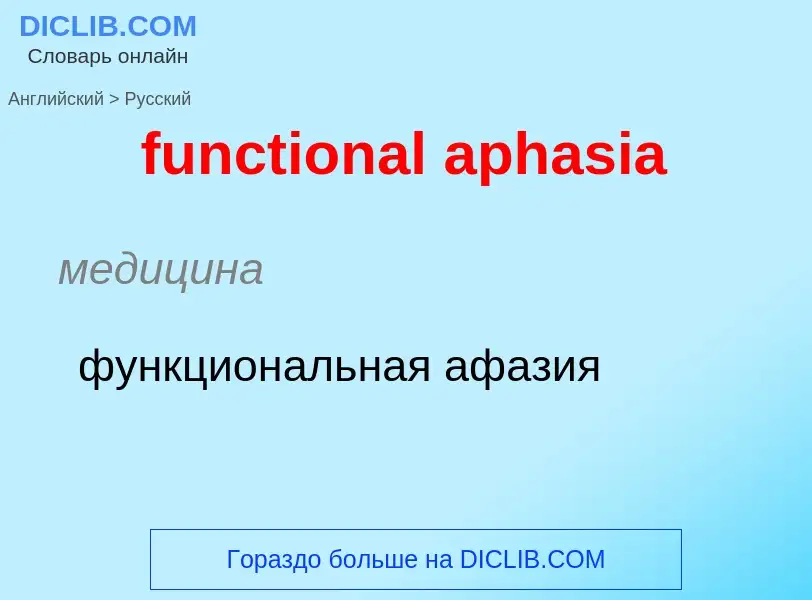Μετάφραση και ανάλυση λέξεων από την τεχνητή νοημοσύνη ChatGPT
Σε αυτήν τη σελίδα μπορείτε να λάβετε μια λεπτομερή ανάλυση μιας λέξης ή μιας φράσης, η οποία δημιουργήθηκε χρησιμοποιώντας το ChatGPT, την καλύτερη τεχνολογία τεχνητής νοημοσύνης μέχρι σήμερα:
- πώς χρησιμοποιείται η λέξη
- συχνότητα χρήσης
- χρησιμοποιείται πιο συχνά στον προφορικό ή γραπτό λόγο
- επιλογές μετάφρασης λέξεων
- παραδείγματα χρήσης (πολλές φράσεις με μετάφραση)
- ετυμολογία
functional aphasia - translation to ρωσικά
медицина
функциональная афазия
медицина
сенсорная афазия
Ορισμός
Βικιπαίδεια

Wernicke's aphasia, also known as receptive aphasia, sensory aphasia or posterior aphasia, is a type of aphasia in which individuals have difficulty understanding written and spoken language. Patients with Wernicke's aphasia demonstrate fluent speech, which is characterized by typical speech rate, intact syntactic abilities and effortless speech output. Writing often reflects speech in that it tends to lack content or meaning. In most cases, motor deficits (i.e. hemiparesis) do not occur in individuals with Wernicke's aphasia. Therefore, they may produce a large amount of speech without much meaning. Individuals with Wernicke's aphasia are typically unaware of their errors in speech and do not realize their speech may lack meaning. They typically remain unaware of even their most profound language deficits.
Like many acquired language disorders, Wernicke's aphasia can be experienced in many different ways and to many different degrees. Patients diagnosed with Wernicke's aphasia can show severe language comprehension deficits; however, this is dependent on the severity and extent of the lesion. Severity levels may range from being unable to understand even the simplest spoken and/or written information to missing minor details of a conversation. Many diagnosed with Wernicke's aphasia have difficulty with repetition in words and sentences and/or working memory.
Wernicke's aphasia was named after German physician Carl Wernicke, who is credited with discovering the area of the brain responsible for language comprehension (Wernicke's area).


